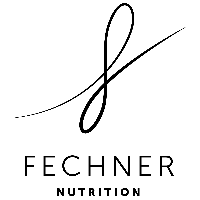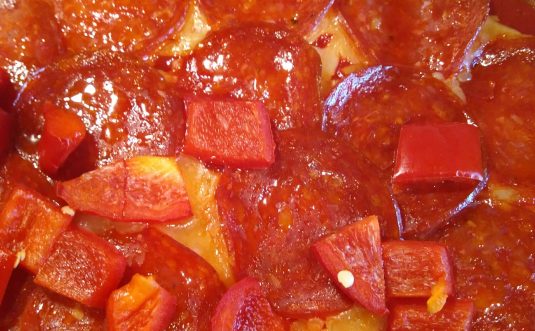Weight Loss and Insulin Sensitivity
You body uses carbohydrates for fuel. Carbohydrates are broken down into glucose which then requires insulin in order to be taken into the cells for utilization. This process tends to break down in many people who consume a typical Western diet of heavy carbohydrates and low fat or unhealthy fats. When your blood stream is constantly being flooded with surges of glucose, your insulin must work overtime to correct the load. High blood sugar is a dangerous thing that your body works hard to avoid at all costs. Unfortunately, insulin receptors eventually become less sensitive, resulting in high circulating blood glucose with no where to go. Insulin Resistance leads to metabolic syndrome responsible for weight gain, inflammation and cardiovascular disease.

In this article I will address some important tips and information to help you maintain your insulin sensitivity to aid in maintaining a healthy weight and great cardiovascular fitness.
In addition to correcting your microbial balance to aid in weight loss, consuming the right type of carbohydrates is essential. With my clients, I typically do a health history and complete symptom intake to determine which types and amounts of carbohydrates are best for their body. Since this is an article designed for the general population, I will give some more generic tips. If you need more specific help, please consider signing up for a consultation with me. It is the best way to ensure your success at achieving health and weight loss within a shorter time frame.
Carbohydrates, while needed for energy and glycogen storage in the muscle and liver, can be responsible for creating blood sugar imbalance and eventual metabolic disorders. They should be consumed in moderation and only after consuming proteins and fats to help stabilize your bodies insulin response. In addition there are some carbohydrates that are best avoided altogether due to the empty calories and major glycemic overload to which they contribute.
For training purposes, there is a window after heavy physical exertion in which glycogen is stored without disrupting insulin levels. This window of time is an ideal time to consume carbohydrates, as your muscles will be able to store the carbohydrates without using insulin, safely replenishing your glycogen storage.
So the key takeaway here is to consume your carbohydrates with protein and fats to help stabilize blood sugar, and to consume them directly after a moderate to heavy workout when the glucose is directly absorbed into the muscle for glycogen storage without disrupting insulin.
What to Avoid

Processed foods such as mass produced bread, chips, pasta, bagels, breakfast cereal, and white rice (other than small amounts of cold rice for resistant starch). In addition to being completely unnecessary in a healthy diet, baked goods and processed foods such as chips contain large amounts of quickly digested carbohydrates that cause a sudden surge in blood sugar, which leads to a spike in insulin.
In addition to the unhealthy insulin spike caused by these foods, baked goods in particular contain “conditioners” that allow for them to have the desired texture and consistency. These dough conditioners contain a chemical known as bromine, which tricks your body into thinking it is iodine. You thyroid gland will uptake bromine instead of iodine, leading to iodine deficiency and hypothyroidism, which in turn leads to obesity and depression.
Large amounts of white starchy vegetables. Again these are not necessary in a healthy diet and merely contribute to insulin dysregulation when eaten in the typical standard American diet quantities.
Heavy grain consumption, even “whole grains.” Whole grains while touted as uber healthy are actually not necessary for good health. They contain many anti-nutrients, such as phytates, which can irritate the digestive system and contribute to inflammation. If you really must consume whole grains, choose those free of gluten and prepare them by soaking overnight before using in a recipe or cereal. In addition if you want an occasional piece of bread or a sandwich, it is best to make your own naturally fermented sourdough bread. The fermentation of the flour causes more nutrients to be released and also counteracts the anti-nutrients mentioned earlier, making the bread more nutritious and easier on your digestive system at the same time. Sourdough starters are easy to obtain and can even be created in your own kitchen if you prefer.
Anything with corn syrup or high fructose corn syrup, glucose syrup, agave nectar, sugar, etc. You can download my sweetener guide from the first article for more detailed info.
Corn products- corn is another highly inflammatory food. If you must have corn, choose organic and non-GMO varieties and products and consume only in moderation or avoid entirely. While corn is a traditional food in many cultures, the varieties that are produced and consumed now are nothing like those of ancient times and are no longer contributing to the health of the people.
Avoid fruit drinks and juices. Unless you are juicing mostly green vegetables, most juices are just another concentrated form of sugar that places stress on your body, contributing to insulin resistance and weight gain.
Breakfast - Why the Most Important Meal?

One of the most important ways to program your body to lose weight and avoid overeating is to consume a proper breakfast. Not just any breakfast will do! In order to create a feeling of satiety and avoid the typical crash later in the day, you must consume a breakfast with healthy proteins and fats above all else.
Breakfast cereals, bagels with toppings, toast and orange juice, coffee with creamers, fruit and sweetened dairy products are not going to lead you to health. These all lack the proper amount of protein and healthy fat to properly start your day. If you start out with a heavy carbohydrate breakfast, you will be hungry again, possibly ravenous a short while later, causing you to overeat for the rest of the day. It is a vicious cycle that needs to be broken before you can make proper progress with your health and weight.
Proper breakfast should include a protein food, such as beef, chicken, pork, eggs, and full-fat dairy products without a bunch of added sugars. Add to this some type of fiber rich vegetable or low glycemic fruit, such as berries and you will have enough calories and nutrients to properly support your body and brain for the day.
In addition to consuming a good quality protein for breakfast, consuming a small mug of bone broth is excellent for amino acids, natural collagen and good digestion. This will help keep your skin and joints well mobilized and youthful. This is an easy to prepare food item that has enormous return on time investment. Beware store bought broths and stocks as they tend to contain mostly sodium and flavorings and will not give you good results and possibly will give you a headache from the additives.

Wrapping Up

To help with your progress, I have created a packet of recipes and a cheat sheet that you can print out and hang on your fridge if you want or just keep it on your device and refer to it when necessary. This packet includes how to make your own delicious bone broth and probiotic-rich, fermented pink sauerkraut. To download your free PDF of recipes, weight loss and healthy digestion tips, please sign up for my newsletter by entering your name and email below, and the link for the PDF will be sent to your email.
Free! More Energy and Less Weight in 3 Weeks!
Simple and effective strategies to increase energy and weight loss right now! Download your 100% free cheat sheet + recipes here:Again, maintaining a stable blood sugar and avoiding insulin spikes are essential to enabling your body to shed weight. Also, avoiding the sugars and unhealthy forms of carbohydrates will enable you to take in less calories overall. The calories you do take in will be more nutrient dense and will nourish your body and brain rather than providing you with empty calories that contribute to fatigue and crashes a short while later. Protein and healthy fats provide a show burn of energy that can get you through the day successfully.
If you are feeling overwhelmed with the information, you are not alone. It can be difficult at first to implement these changes, especially if this information is new. If you feel you could use a more simplified and step by step approach, I provide this with my consultation services. We go over your health history, symptoms and even blood test results to formulate a personalized, incremental plan to help get you in the best shape of your life.
Feel free to ask questions or leave comments in the box below, or if you would prefer a personal conversation, my contact info is readily available on my contact page.











